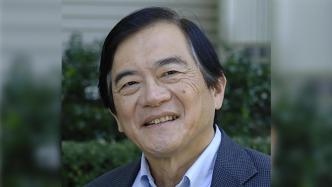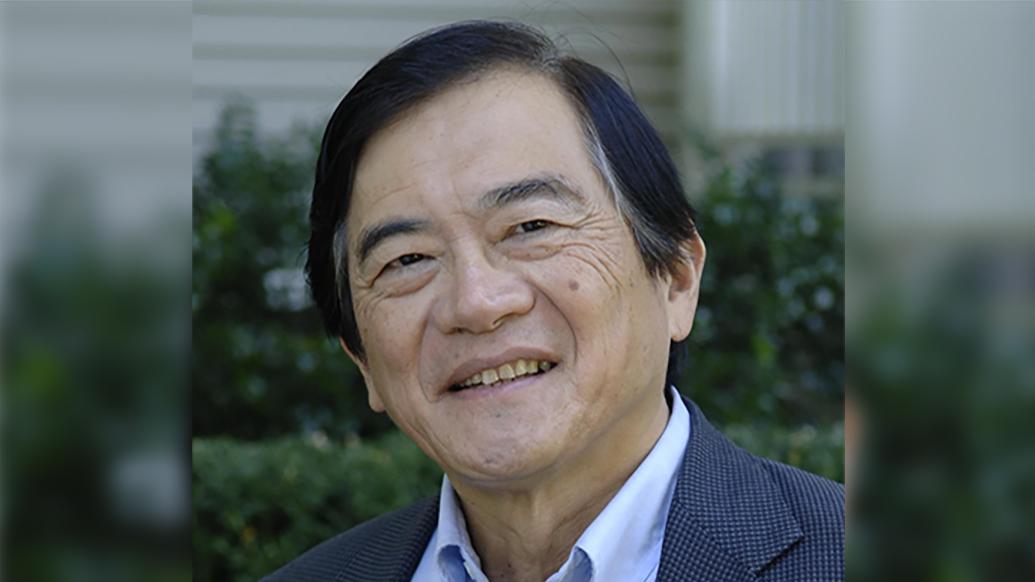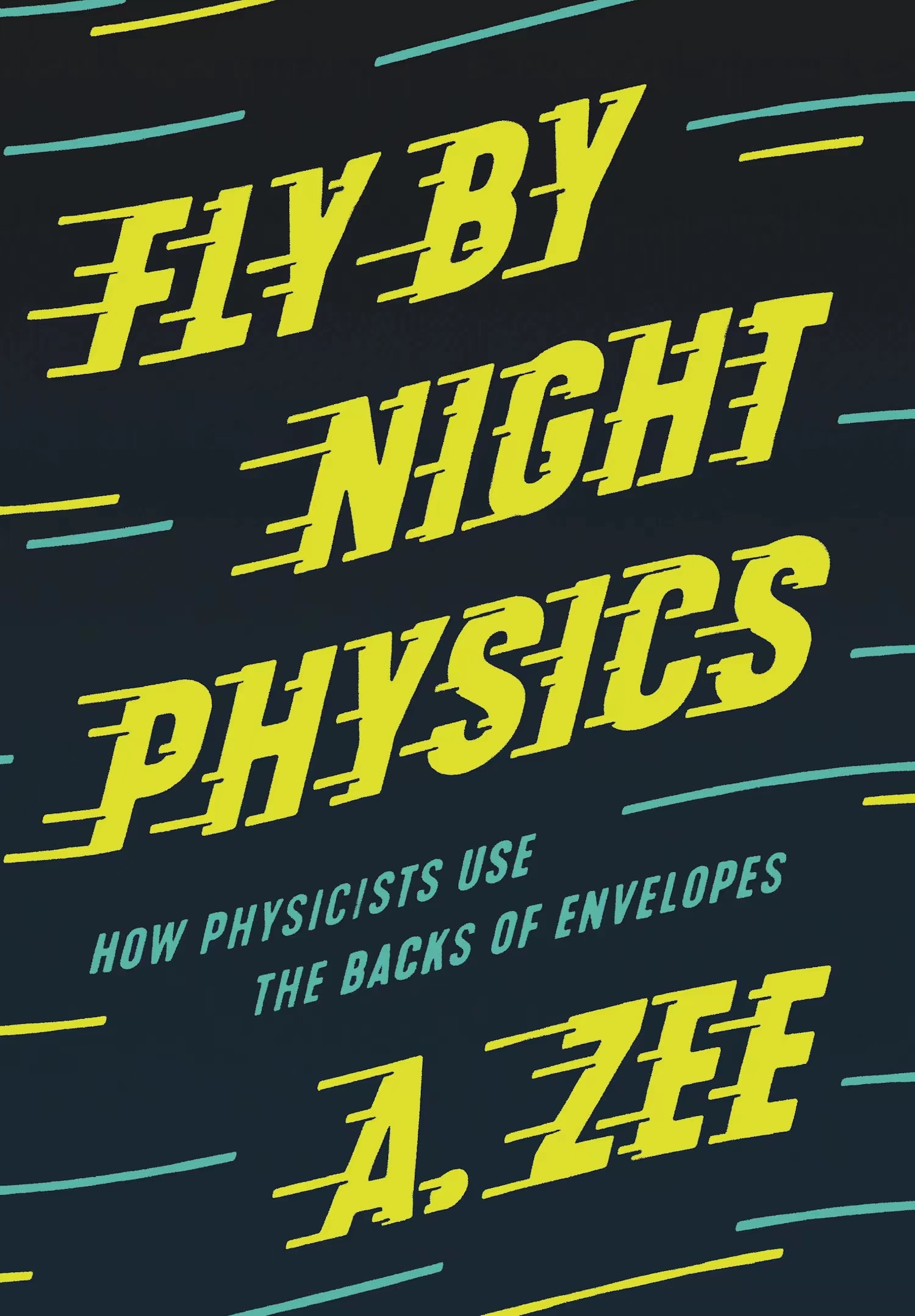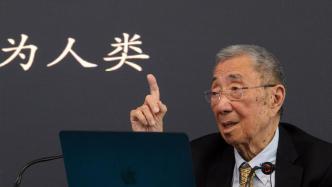
· "It is important to help students develop more physical intuition, which is one of the reasons I wrote this book. How to develop physical intuition? In the book I mentioned two possibilities: be born with physical intuition, or Develop physical intuition through constant practice."

Professor Xu Yihong.
"You should think first. Thinking is much harder than calculating. Most people can sit down and calculate, but thinking without calculating is extremely difficult."
On December 13, Anthony Zee, a professor of physics at the University of California, Santa Barbara, participated online in an online seminar on "How is Physical Intuition Developed?" hosted by Princeton University Press. "Lectures on the theme. At the meeting, Xu Yihong shared his new work "Fly by Night Physics: How Physicists Use the Backs of Envelopes" and made the above speech. Lou Yuqing, a professor of the Department of Physics of Tsinghua University, presided over the event, and together with He Hongjian, a professor of the School of Physics and Astronomy of the T.D. Lee Institute of Shanghai Jiaotong University, had a dialogue with Xu Yihong.

Fly by Night Physics: How Physicists Use the Backs of Envelopes book cover. Image credit: Princeton University Press.
Xu Yihong is a Chinese-American physicist and writer, native of Shanghai, born in Kunming, and later immigrated to Brazil. He is currently a professor of physics at the University of California, Santa Barbara. According to the "Princeton Reading Club" official account, Xu Yihong's research fields are very extensive, involving high-energy physics, field theory, cosmology, biophysics, condensed matter physics, mathematical physics and many other fields. It is reported that Xu Yihong has published more than 200 papers and some popular science works. His masterpieces include "Awesome Symmetry", "Einstein's Universe" (formerly known as "Old Man's Toys"), "Swallowing Clouds", and "The Unity of Forces" Wait.
At the meeting, Xu Yihong first shared his college experience. In the first week of college, Xu Yihong's teacher, the famous theoretical physicist John Wheeler, told the students in the class: "Never calculate unless you already know the answer!" The students were shocked because they What I learned in high school is that the core of physics is to calculate as much as possible, "calculate until your ears smoke".
"This sentence means that you should think first. Thinking is much more difficult than calculating. Most people can sit down and calculate, but it is extremely difficult to think about problems without calculating." Xu Yihong said.
During his teaching career for many years, Xu Yihong observed an apparently contradictory phenomenon: many students performed well in courses and performed well in exams, but their research was mediocre. "This is because doing homework, exams and doing research are different. Because everyone has a method learned in the course when doing homework and exams, which can be applied to solve problems. But there is usually no method for doing research." He said.
He remembered that 30 or 40 years ago, a postdoctoral fellow stayed up all night and did about 60 pages of complex calculations. After seeing it, Xu Yihong said that the result was not in line with his intuition. Also, the postdoc couldn't explain his results in words. Xu Yihong always hoped that people would use words to explain physics instead of writing down a lot of equations. In those 60 pages, they finally found a copying error that meant the rest of the calculations were wrong. "This is a kind of blind calculation, without intuition to consider the problem." Xu Yihong said.
In fact, this postdoctoral fellow has read a lot of books. When discussing physics with him, he always told Xu Yihong that there are answers in the books and he can look them up. In the end, Xu Yihong told him to put all these books in a cardboard box and not to read any more books. 40 years later, the postdoctoral fellow is very grateful to him and believes that Xu Yihong's suggestion at that time was very correct.
Therefore, Xu Yihong believes that it is necessary to help students develop more physical intuition, which is one of the reasons why he wrote "Fly by Night Physics: How physicists Use the Backs of Envelopes". In his book, he mentioned two possibilities of physical intuition, one is born with this intuition, and the other is to cultivate this intuition through continuous practice. For example, by doing a lot of calculations, it is possible to develop physical intuition.
Inspired by John Wheeler, Xu Yihong opened a special course on "Physics of Night Navigation" at the University of California, Santa Barbara, requiring students to Think about the answer first. Xu Yihong introduced in the preface of "Fly by Night Physics" that "Night Physics" refers to sleepless nights on coaches or planes, without pen and paper for calculations, which can also solve problems. So in Xu Yihong's class, the students were asked to keep the calculations in their heads. "It's fun not having pen and paper, you might be forced to focus on the gist of basic physics instead of worrying about tools, eyes, and the order of things," Xu said.
But it's not that Xu Yihong doesn't like fly by day physics (meaning rigorously calculated physics). As he wrote in the preface to the book, "Of course you should do precise calculations if you can! But even if you do, take a piece of paper and do a rough calculation first, and get the key points clear, which will guide you. You think accurately and deeply, and test your answers realistically. After you have calculated meticulously, you should also see if you can recall how each numerical factor 2 and π came from. This practice can give You have a sixth sense, so that you can later put in some numerical factors of 2 and π when doing physics on a night flight."
Xu Yihong said his book emphasizes how to guess the answer based on physical intuition and understanding. And that often requires a basic knowledge of physics, knowing what is correlated and what is not. He also emphasized the fun of physics. In his foreword, he wrote, "I realized that physics can describe the real world! This book emphasizes fun, the joy of understanding, not technical mastery, and certainly not the ability to multiply and divide."
Lou Yuqing said that Xu Yihong told everyone a way of thinking about physics: when performing very complex calculations, one should recall what the starting point is and which steps are the most important. In addition, people who are engaged in cutting-edge physics work often need bold guesses when they arrive at important results, that is, they need a spirit of courageous attempts.
He Hongjian said that he has taught quantum field theory courses at Tsinghua University and Shanghai Jiaotong University for many years, and he has always opposed closed-book exams in class. Because in the field of quantum field theory, it is meaningless to emphasize the exam. Under China's college entrance examination system, students are trained in middle school to solve a problem for which they already know the answer. Therefore, students may need to be more aware of research methods that do not know the answer. In addition, he also believes that both mathematicians and physicists have intuitions, but the intuitions of the two are different. Mathematicians just need to prove the problem, and physics often don't know where the problem is.
According to "Princeton Reading Collection", in a typical physics classroom, students try to master a large number of mathematical methods to deal with precise calculations in physics. As a result, students often develop the impression that physics consists of well-defined equations that must be solved through rigorous reasoning and logical steps. Standardized textbook exercises also reinforce this impression. But Professor Xu Yihong pointed out that this standard teaching method neglects the training of "physical intuition". In reality, physics is full of rough estimates, magnitude guesses, and various logical "jumps." Even the best students can find themselves unprepared for the challenges they face when they start their physics research.
In the book "Fly by Night Physics", Xu Yihong introduced how to use physical derivation and reasonable estimation to solve problems, so as to help students change their thinking, get out of the classroom "studying questions" mode, and enter the real palace of physics research. From Hawking radiation to gravitational waves, this book covers all the exciting frontiers in physics and will help students gain a deeper understanding of what they've learned and start thinking about physics intuitively to get the answers they're looking for .

